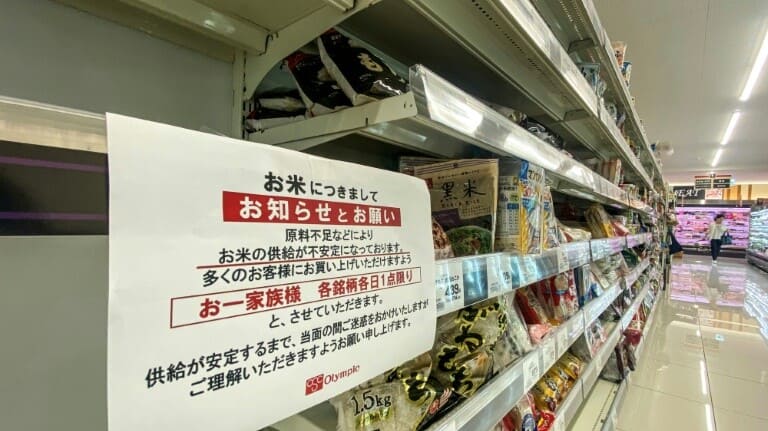
Japanese panic buy rice as shortage hits, government urges calm
What's the story
The Japanese government is urging citizens to remain calm as panic buying of rice continues across the country. This surge in demand for the staple food has been triggered by multiple factors including the threat of a megaquake, a series of typhoons, and a week-long national holiday. A supermarket employee in Tokyo told news agency AFP that they could only procure half their usual summer stock of rice, leading to rapid sell-outs.
Stock management
Supermarkets ration rice amid dwindling stocks
The panic buying has led to supermarkets either running out of rice or having to ration their stocks. This situation was exacerbated by a government warning about a potential megaquake, several typhoons, and the annual Obon holiday. Other contributing factors include lower harvests due to hot weather and water shortages, as well as increased demand from record numbers of foreign tourists visiting Japan.
Purchase restrictions
Supermarkets implement purchase limits to manage demand
In response to the rice shortage, some supermarkets have implemented purchase limits. One Tokyo store displayed a sign requesting customers to limit their purchases to one bag of rice per day per family. Another store worker stated that they were unable to procure any rice at all, with no prospects of restocking in the near future. A Fresco supermarket employee reported that their daily stocks were depleted by midday due to high demand.
Government appeal
Farm minister appeals for rational purchasing amid shortage
In light of the ongoing rice shortage, Farm Minister Tetsushi Sakamoto has appealed to the public for rationality. He urged citizens to "be cool-headed in your purchase activity by buying only the amount of rice you need," assuring them that "the supply shortage situation will be gradually resolved." Notably, rice plays a significant role in Japanese culture and economy, with an annual consumption of seven million tons.
Reserve status
Japan's rice reserves at lowest level since 1999
According to reports, despite a decline in demand due to population decrease and changing dietary habits, Japan's rice reserves hit their lowest level in June since 1999. However, officials are confident that the current inventory is adequate. A new harvesting season has begun with an expectation that 40% of the crop will be available by the end of September, according to a farm ministry official.